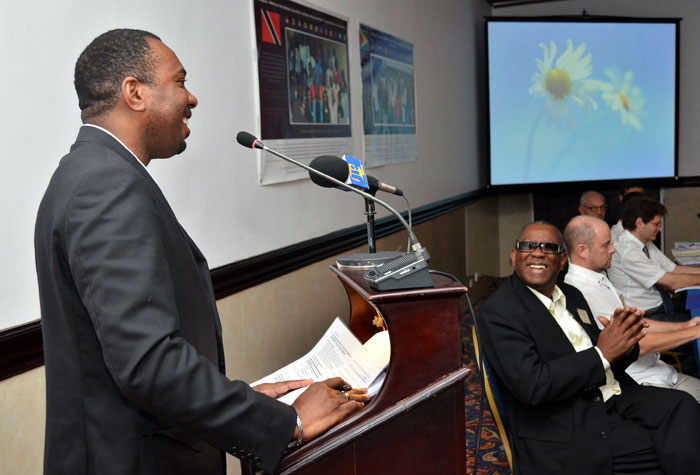Gov’t Committed to Eliminating Avoidable Blindness
By: , December 4, 2013The Key Point:
The Facts
- Avoidable blindness is defined as blindness, which could be either treated or prevented by known, cost-effective means.
- About 285 million people around the world are visually impaired. Four out of five cases are avoidable.
The Full Story
Chief Medical Officer in the Ministry of Health, Dr. Kevin Harvey, says the Government is committed to the elimination of avoidable blindness by the year 2020, through delivery of the highest quality of health care to its citizens.
“The matter of eye care is an important part of the menu of items that represent the effort to deliver quality health care to the Jamaican people,” he said, while addressing the opening session for the 2013 Annual Meeting of Vision 2020 Committees Representatives for the Caribbean, held on December 3, at the Jamaica Pegasus Hotel in New Kingston.
Avoidable blindness is defined as blindness, which could be either treated or prevented by known, cost-effective means. According to the World Sight Day 2013 Report, about 285 million people around the world are visually impaired. Four out of five cases are avoidable.
Dr. Harvey said efforts to eliminate avoidable blindness are consistent with the Vision 2020 (The Right to Sight) Programme of the World Health Organization (WHO), a global initiative to significantly reduce avoidable blindness by 2020.
He noted that significant progress could be made in achieving this goal by tackling some of the symptoms of chronic non-communicable diseases (NCDS) such as diabetes and hypertension, which often manifest themselves in other ailments such as failing eyesight.
“We are pleased to have partnered with Vision 2020 through the Southern Regional Health Authority to service a catchment of over 600,000 persons by delivering quality eye care in that region. This is especially of great value in screening for diabetic and hypertensive-related eye diseases – glaucoma, cataracts, diabetic retinopathy among others,” he said.
The CMO further noted that over 500,000 primary care visits have been done across the country, with half related to diabetes and hypertension alone.
The region meeting, which ends Wednesday, December 4, seeks to provide a platform for sharing, learning and networking and will strengthen links between Vision 2020 Committees and professionals involved in eye health.
Participants are expected to become familiar with perspectives from other areas and will be exposed to new thinking, technologies and opportunities that can be used to benefit eye health service delivery in their countries.
The meeting will pay particular attention to Diabetic Retinopathy – one of the most prevalent causes of blindness in the Caribbean, and will discuss the WHO’s ‘Towards Universal Eye Health: a Global Action Plan 2014-2019’.
The Plan was unanimously adopted by member states at the World Health Assembly held in Geneva in May of this year. As such, 194 countries, including Jamaica, have acknowledged the importance of universal eye health and have committed to reducing the prevalence of avoidable visual impairment and securing access to rehabilitation services for the visually impaired.
The meeting is being held with the technical and financial support of the Caribbean Council for the Blind (CCB)-Eye Care Caribbean, the European Union (EU), Pan American Health Organization (PAHO), and Sightsavers.

